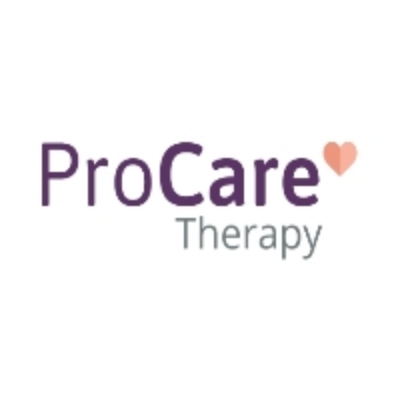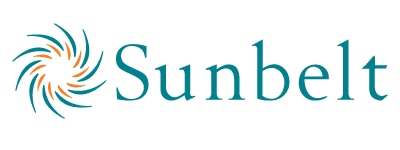About Job
QualificationsProfessional Competencies * Demonstrate a professional attitude and supports the objectives of the facility’s business development/marketing and guest relations philosophy through internal and external communications and interactions with all levels of staff, patients, family members, guests, community and referral sources.
- Demonstrate appropriate therapeutic boundaries. Consistently follow established procedures.
- Uses self as a role model to promote health communication.
- Meet the social work needs of the patient population being serviced.
- Contribute to the effective functioning of the patient’s program and other facility-wide activities.
- Assure that patient’s rights are upheld.
- Maintain confidentiality in compliance with professional ethics according to professional and facility standards.
- Identify opportunities for the program and participate in Performance Improvement projects and activities.
- Continue professional development in individual, family, and group therapy and maintain professional development in personnel file.
- Assist in the orientation of new colleagues and supervising student interns.
- Comply with required standards for medical/legal reporting situations (i.e. child abuse, dependent adult abuse, psychiatric commitment).
- Represent the facility at legal hearings as requested, submits paperwork for legal holds in a timely fashion, act as liaison with conservator’s office.
- Effectively employ principles of communication, interviewing techniques, problem solving skills and crisis interventions when performing psychotherapeutic interventions.
- Utilize appropriate verbal and physical interventions in accordance with Verbal De-escalation and Handle with Care practices during psychiatric emergencies. Potential physical interventions include escape techniques, blocking techniques, the Primary Restraint Techniques (PRT) and Takedown techniques alone and with assistance.
- Utilizes universal precautions when caring for a patient.
- Document and report infections to the Infection Control Nurse.
- Report unsafe conditions to appropriate personnel.
- Assists with ensuring patients are adequately oriented to the program.
- Monitor program activities and encourage patient participation.
- Formulate and conduct educational, therapeutic, and/or support groups on scheduled timetables.
- Develop an effective working relationship with patient and/or family (engagement, collaboration, advocacy, problem solving).
- Communicate effectively with patients, families, treatment team members and community providers regarding patient status and progress.
- Provide liaison and referral services to community agencies and appears in court when requested or subpoenaed.
- Document assessment update when there are significant changes in patient’s condition or readmission in the last thirty days.
- Consult with families on emotional, social and financial aspects of care.
- Interact and communicate with community agencies in assessment of and service to patients.
- Demonstrate knowledge of biopsychosocial factors and DSM-V related to the ages of the patients served, and incorporate the knowledge base into the treatment plan.
- Ensure that the treatment plan has specific measurable goals, objectives and interventions defining actions unique to each patient’s needs.
- Evaluate and document effectiveness of interventions and patient responses.
- As appropriate, when goals/objectives are met, participate in revision and update.
- Ensure interventions are carried out in the patient’s plan of care.
- Inform and collaborate with patient and families on stated treatment plan goals and document patient participation through routine signatures by patient and each member of the treatment team.
- Promote learning experiences and provide educational materials to patients and their families.
- Evaluate and document effectiveness of all patient teaching.
- Provide opportunities for patients and families to question, discuss and explore their feelings about prescribed therapies/interventions/diagnosis.
- Effectively collaborate with other chemical dependency staff professionals in facilitating the plan of care.
- Maintain an awareness of how personal issues relating the co-dependency can impact work performance/relationships.
- Collaborate with other dual diagnosis staff professionals in planning for discharge and follow-up care.
- Maintain an awareness of how personal issues relating the co-dependency can impact work performance/relationships.
- Recognize and establish limits on medication-seeking behaviors.
- Act as a resource to other staff in regards to the Dual Diagnosis Patient Programs.
- Attend all mandatory facility in-services and staff development activities as scheduled.
- Adhere to facility standards concerning conduct, dress, attendance, punctuality and service excellence.
- Support facility-wide quality/performance improvement goals and objectives.
- Maintain confidentiality of facility employees and patient information.
- Knowledge of crisis intervention procedures.
- Knowledge of individual and group therapy techniques.
- Knowledge of therapeutic treatment planning and techniques.
- Strong clinical assessment skills
- Skill in organizing and prioritizing workloads to meet deadlines.
- Skill in telephone etiquette and paging procedures.
- Effective oral and written communication skills.
- Ability to communicate effectively with patients, co-workers and supervisor.
- Ability to adhere to safety policies and procedures.
- Ability to use good judgment and maintain confidentiality of PHI
- Ability to work as a team player.
- Ability to demonstrate tact, resourcefulness, patience and dedication.
- Ability to accept direction and adhere to policies and procedures.
- Ability to work effectively with various patient age groups (adolescent, adult and geriatric).
- Ability to recognize the importance of adapting to the various patient age groups (adolescent, adult and geriatric).
- Ability to work independently in a consistently fast-paced environment.
- Ability to meet corporate deadlines.
- Ability to react calmly and effectively in emergency situations.
Professional Field
 Marriage and Family Therapy
Marriage and Family Therapy Social Work
Social Work Other Behavioral, Mental, or Healthcare Field
Other Behavioral, Mental, or Healthcare FieldPatient Focus
Diagnoses
Avoidant Personality Disorder
Codependency
Gender Dysphoria
Issues
Aging
Medication Management
Pregnancy, Prenatal, Postpartum
Racism, Diversity, and Tolerance
Age Groups
Adolescents/Teenagers (14-19)
Elderly (65+)
Therapeutic Approach
Methodologies
ECT
Pharmacotherapy
Biopsychosocial Assessments
Modalities
Families
Groups
Individuals
Practice Specifics
Populations
Victims of Crime/Abuse (VOC/VOA)
Racial Justice Allied
School
Settings
Faith-based organizations
In-patient Non-Psychiatric
In-patient Psychiatric
Intense Out-patient (IOP)
Milieu
Private Practice
Research Facilities/Labs/Clinical Trials
Home Health/In-home
Military
Forensic
Sign up for job alertsGet daily alerts for jobs relevant to you, sent to your inbox












